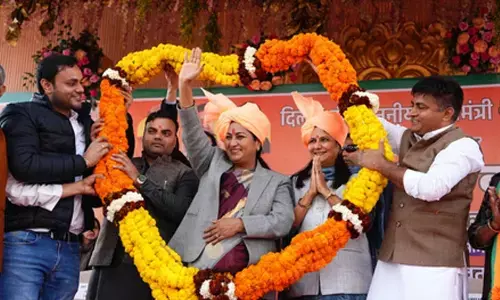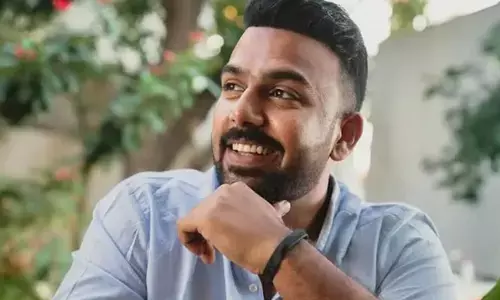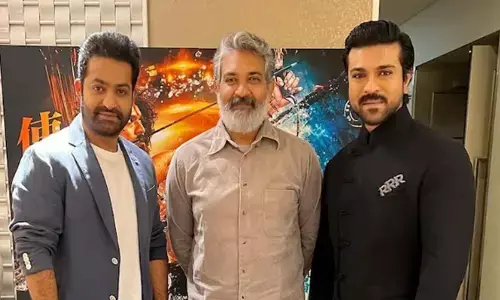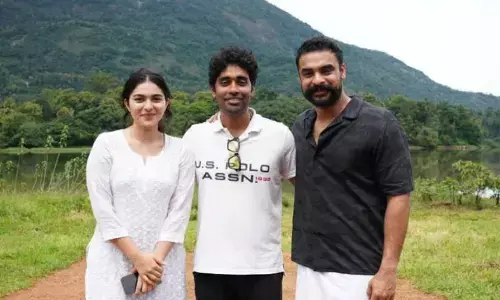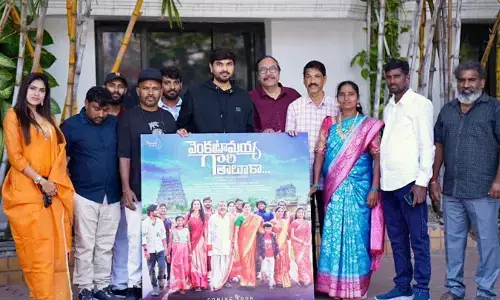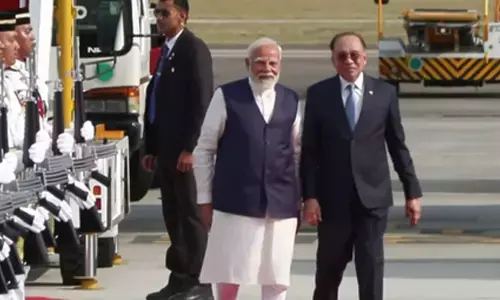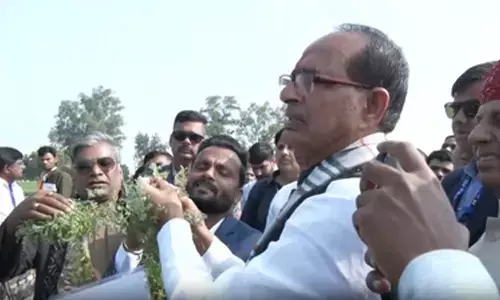A gender equal view on climate
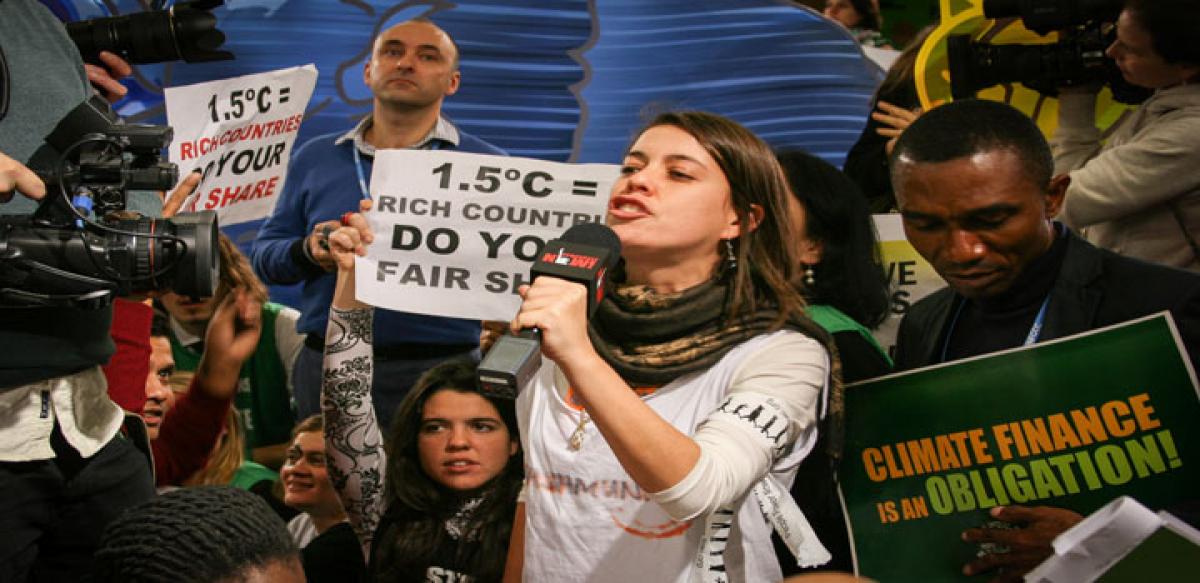
For young, committed feminists focused on arresting climate change and its devastating impact on communities, the new year is not a time for celebration. And that’s because in the post-2020 global climate agreement, the outcome of the 21st Conference of Parties (COP21) to the United Nations Framework Convention on Climate Change (UNFCCC) “gender equality and women\'s empowerment remains only in the
Young feminists speak up for gender-just climate solutions, explaining why climate justice and gender equality are necessary. This is because basic needs such as energy for daily cooking are often the responsibility of women, and as climate change impacts increase, these tasks are becoming difficult
For young, committed feminists focused on arresting climate change and its devastating impact on communities, the new year is not a time for celebration. And that’s because in the post-2020 global climate agreement, the outcome of the 21st Conference of Parties (COP21) to the United Nations Framework Convention on Climate Change (UNFCCC) “gender equality and women's empowerment remains only in the Preamble of the Agreement”.
“Two weeks of hard work and battle came to an end… I guess we lost in terms of justice,” tweeted Reem Al Mealla, a fiery young climate scientist from Bahrain after 195 countries formally adopted the climate agreement.
“We need to be able to claim climate compensation. How can an international agreement limit a country from claiming its climate debt?” questioned Anjali Appadurai, a collegiate from Canada in her tweet, on the heels of the Paris conference.
Appadurai was among 16 climate justice advocates from 15 countries across six continents to send an open letter at the start of COP21 to Christiana Figueres, Executive Secretary to the UNFCCC, Laurent Fabius, President of COP21, and the Delegates to COP21. The letter called for “centering gender, indigenous rights and resource distribution so that humanity [can] enjoy a low-carbon, sustainable and deeply democratic future”.
Sarah Hurtes, a young French communication professional working with UN Women at COP21 explains why climate justice and gender equality are necessary, “Floods, extreme weather events and reduced food and water security affect women and men differently, with the poorest being the most vulnerable.
When 70 per cent of the world’s poor are women, it makes much sense to look at the impacts of climate change from a gender perspective. Women are predominantly responsible for food production, household water supply and energy for heating and cooking. As climate change impacts increase, these tasks are becoming more difficult.”
Like Hurtes, Saket Mani, 22, from India, too, believes in the gender-just approach. Mani, who describes himself as “a wannabe tech enthusiast, a feminist, a voracious reader, foodie and cultural explorer”, had led an interactive event on ‘Strengthening intergenerational dialogue and partnership on gender equality and climate change’ on the side of the official negotiations at COP21.
He was joined by Kundan Saun, 23, who created quite a stir as he sang ‘Azaadi,’ a Hindi composition on gender equality.“Today’s generation of young people is the largest that the world has ever known – and they represent one of the greatest assets that countries have,” observes Mani.
“Nearly 90 per cent of the world’s youth live in developing countries and it is here that their energy, enthusiasm and innovation can be channeled to accelerate sustainable development. The reality is that climate change affects all humanity.
But women and girls, because of the roles they play in society, are impacted in a heightened manner. The vast majority of farmers in the developing world are women and they are trying to adapt and be resilient. So, we cannot create a gender-blind utopia and expect climate change to be resolved.”
Hurtes is forthright about the failure of the Paris Agreement - and indeed the UNFCCC secretariat itself - to be inclusive at various levels. “The COP21 Agreement does not fundamentally address the needs of the most vulnerable countries, communities and people of the world,” she says, adding “Although progress has been made under this Convention in understanding and responding to the gendered impacts of climate change over the last few years,
the decision-making processes in Paris did not include equal numbers of men and women at all levels – neither among the civil society ‘observer’ groups, nor in Party delegations or within the official UNFCCC bodies. Executive bodies established under the Convention are mandated to achieve gender equality. Yet, these remained predominantly male.
“Moreover, gender equality and gender justice have not been incorporated in meaningful ways throughout the agreed text. The Agreement’s Preamble recognises the need for the protection of human rights, gender equality, and indigenous rights, but fails to follow through on this promise in its critical operative sections covering mitigation, technology, climate finance and loss and damage.”
In early December 2015, the Women and Gender Constituency, a platform of civil society organisations working to mainstream gender within the UNFCCC process and outcomes, had hosted the first-ever Young Feminist Day during their Women and Gender Caucus. This was two days after the visiting heads of States had made a show of political will to bring in an ambitious, fair and just climate agreement.
The young are impatient. Even as the Arab world continues to rely on oil and Saudi Arabia was a blocker on getting gender equality and rights of indigenous people in the Purpose (Article 2) of the Paris Agreement, Reem Al Mealla and her fellow-travellers have started the Arab Youth Climate Movement (AYCM).
This is the first platform for youth to address climate change issues for the Middle East and North Africa (MINA) region – and ask for gender equality.Across the world, women like Al Mealla and her compatriots have made up their mind to be at the vanguard of gender-just climate solutions. As Alina Saba remarks, “Living with climate change is a reality, it keeps us awake at night.”








